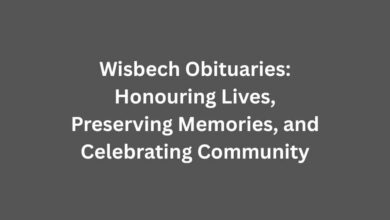Nick Raynsford: A Life in Politics, Housing and Planning Reform

Nick Raynsford is a name that carries considerable weight in the history of modern British politics, particularly within the Labour Party and in the domain of housing and planning reform. Over several decades, he built a reputation as a thoughtful, diligent and often outspoken figure who worked tirelessly to address the complex challenges of urban development, housing shortages and local government. His journey from early political activism through to his long career in the House of Commons, and later as an authoritative voice on planning, demonstrates how a single individual can help shape debates that affect millions of people across the United Kingdom.
Early Life and Education
Nick Raynsford was born in 1945, a year that marked the end of the Second World War and the beginning of enormous social and political transformation in Britain. He was educated at Reigate Grammar School before going on to study at the University of Cambridge, where he read History. Like many of his contemporaries who entered politics, his early education shaped his understanding of the interplay between government, society and economics.
From an early age, he displayed a strong sense of social justice. His interests quickly moved towards public service and the mechanisms by which ordinary citizens could be given fairer opportunities. These convictions would underpin his career as he sought to reform housing policy and address inequalities in the planning system.
First Steps in Politics
Raynsford’s initial entry into national politics came when he was elected as the Labour Member of Parliament for Fulham in a 1986 by-election. Although he lost the seat at the 1987 general election, the experience gave him a platform to demonstrate his commitment to urban policy and housing issues. His time away from Parliament was not wasted. He immersed himself in housing charities and campaigns, gaining both expertise and credibility that would serve him well when he returned to Westminster.
Return to Parliament
In 1992, Nick Raynsford returned to the House of Commons as the MP for Greenwich. Following boundary changes, he became the MP for Greenwich and Woolwich, a seat he would hold until 2015. Throughout this period, he gained a reputation for being both a diligent constituency MP and a national voice on housing reform. Greenwich and Woolwich, with their diverse communities, historic landmarks and pressing housing needs, provided the perfect backdrop for his policy interests.
Ministerial Career under Tony Blair
When Labour swept to power in 1997 under Tony Blair, Raynsford was quickly brought into government. Over the next eight years he served in a series of important roles within the Department of the Environment, Transport and the Regions, and later the Office of the Deputy Prime Minister.
Housing and Planning
As Minister for Housing and Planning, Raynsford played a critical role in developing policies aimed at tackling homelessness, improving social housing and modernising the planning system. He was instrumental in bringing forward reforms that sought to balance the rights of developers with the needs of local communities.
He argued consistently that housing should not simply be about numbers but about building communities where people could thrive. His policies encouraged a broader focus on design, sustainability and local infrastructure.
Local and Regional Government
Later, as Minister of State for Local and Regional Government, Raynsford oversaw initiatives to devolve power to local authorities and strengthen regional governance. His efforts to promote decentralisation reflected his belief that decisions affecting communities should be made as close to those communities as possible.
The Raynsford Review
Even after leaving ministerial office in 2005, Nick Raynsford’s influence on planning continued to grow. Perhaps his most significant contribution in later years was the independent review of the English planning system, carried out under the auspices of the Town and Country Planning Association.
The Raynsford Review of Planning, launched in 2017 and concluded in 2018, was a wide-ranging examination of how planning could better serve the public interest. It concluded that the existing system was too complex, under-resourced and often prioritised short-term economic interests over long-term community well-being.
The Review made a number of key recommendations:
- A clearer statutory purpose for planning, focused on delivering sustainable, inclusive growth.
- Stronger resources for local planning authorities.
- Greater emphasis on public participation and accountability.
- Improved integration between housing policy, environmental protection and infrastructure development.
The findings were widely discussed across the political spectrum. Even those who disagreed with certain proposals acknowledged that Raynsford had placed planning reform back on the national agenda in a thoughtful and evidence-based way.
Contributions to Housing Policy
Throughout his career, Nick Raynsford has been particularly vocal about the housing crisis. He has argued that Britain’s failure to build enough affordable homes is one of the most pressing social challenges of our time. He has also highlighted how short-term market pressures have undermined the goal of creating stable, secure communities.
Raynsford has consistently called for a long-term strategy that prioritises quality, affordability and sustainability. He has been unafraid to criticise governments of all parties when he felt they were neglecting these responsibilities. This independence has helped him maintain credibility as an elder statesman of housing policy.
Writing and Thought Leadership
Beyond Parliament and government office, Nick Raynsford has written extensively on housing and planning. His books and essays reflect his deep knowledge of the subject and his commitment to sharing that knowledge with practitioners, students and policymakers. His writing style is accessible yet authoritative, making complex issues understandable without oversimplifying them.
Legacy and Reputation
Raynsford’s legacy is multi-layered. As a minister, he was known for his grasp of detail and his willingness to listen to stakeholders. As a backbencher and later as a commentator, he was valued for his honesty and independence of thought. His career demonstrates that political influence does not end when one leaves office; indeed, his post-ministerial contributions may ultimately prove as influential as his time in government.
Personal Qualities
Colleagues and commentators often describe Nick Raynsford as pragmatic, principled and approachable. While he was not always in the media spotlight, his quiet determination and command of detail earned him respect across the political spectrum. His style was less about grandstanding and more about making practical improvements that could stand the test of time.
Ongoing Relevance
Even though he stepped down from Parliament in 2015, Raynsford continues to be cited in debates about housing supply, local government finance and planning reform. The housing crisis in Britain remains acute, and many of the themes he raised — such as the need for affordable homes, proper funding for planning authorities and greater public trust in the planning system — remain as relevant as ever.
Younger politicians, planners and campaigners often turn to his work for guidance, and the Raynsford Review continues to be referenced as a benchmark in discussions about the future of planning.
Conclusion
Nick Raynsford’s career illustrates the impact a determined individual can have on shaping policy in areas that directly affect people’s daily lives. From his early days in Fulham to his long service in Greenwich and Woolwich, from his ministerial responsibilities to his post-parliamentary thought leadership, Raynsford has consistently advocated for fairness, sustainability and community well-being.
At a time when Britain faces profound challenges in housing and urban development, his insights remain essential. The story of Nick Raynsford is not just about one politician’s journey; it is about the ongoing struggle to ensure that planning and housing serve the public interest. His voice continues to remind policymakers and citizens alike that a just society depends on secure homes, thoughtful planning and empowered communities.



